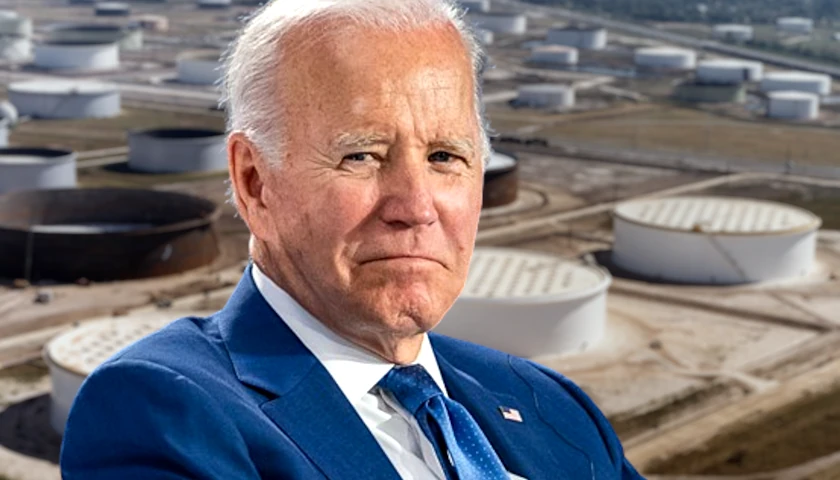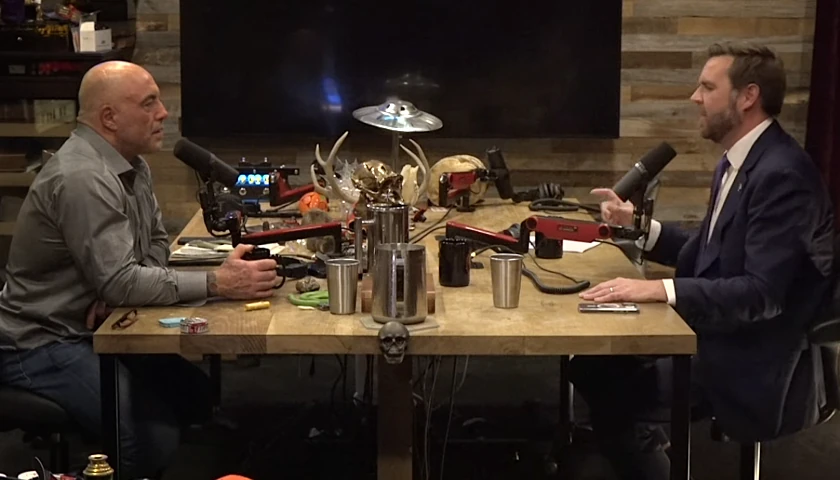by Kevin Killough
When the Department of Energy announced that it had successfully replenished the nation’s stockpile with the total purchased volume of 40 million barrels, the announcement had some people scratching their heads.
The Strategic Petroleum Reserve (SPR), as the stockpile is called, contained over 630 million barrels of crude oil when President Biden took office in January 2021. Last week, it had less than 376 million barrels. How did the DOE refill the SPR with only 40 million barrels?
“I think it’s a very purposely worded, misleading press release to make it seem like it replenished the SPR. And that’s not true at all,” Robert Rapier, a chemical engineer and editor in chief of Shale Magazine, told Just the News.
The July press release announced that the DOE had awarded a contract for the purchase of 4.65 million barrels of crude oil for the SPR, bringing the total amount of oil purchased for its refilling to 43.25 million barrels.
“On top of the 140 million barrels of oil secured by working with Congress to cancel previously-mandated sales, this brings the total purchased or kept in the SPR since 2022 to 180 million barrels – the full amount sold following the unprecedented Russian war against Ukraine,” the DOE release stated.
Rapier said that across multiple outlets, including Reuters and The Hill, the announcement was widely and incorrectly reported that the DOE had managed to refill the stockpiles .
“That’s not what happened,” he said. He said what’s really happening is that the DOE is taking credit for another 140 million barrels that Congress had originally authorized, which would have drained the SPR even further. Those sales were canceled and combined with the 40 million barrels the DOE has purchased, the agency comes to a total of 180 million barrels.
“Those canceled sales wouldn’t necessarily have happened anyway, with the SPR depleted like it is. So, they’re taking credit for something that they shouldn’t be taking credit for,” Rapier explained.
Rapier explains in a Forbes article that in response to Russia’s invasion of Ukraine and the skyrocketing gasoline prices that followed, Biden began the most aggressive SPR drawdown in history.
“Politicians have used the SPR like a strategic political reserve. They tapped that as the elections got too close. Clinton did it. You know, they’ve done it before. That’s not what’s supposed to be used for. But you know, the president has a lot of discretion there,” Rapier said in an interview.
By July 2023, the SPR was down by 288 million barrels, he explains in Forbes, some of which was due to congressionally-mandated sales. Since then, the Biden administration has made a few purchases to put oil back into the stockpiles. As of July 19, the levels in the SPR had risen only 27.7 million barrels from that low point, which is only 9.6 percent of the oil that has been drained from it. It’s still down by over 260 million barrels from what it was when Biden took over the White House.
The 180 million barrels that the DOE is claiming refills the SPR, Rapier wrote, doesn’t include all the barrels of oil Biden drained from it. Today, the SPR remains 40 percent below where it was when Biden took office.
The DOE release also states that the average price that the oil was purchased to refill the SPR was $77 per barrel, which is nearly $20 per barrel lower than the $95 average sale price the DOE received in 2022 when it was being drained.
“From the beginning, this administration has put the economic and energy security of the American people first. This milestone is a proof point that when the Biden-Harris Administration makes and implements a plan, we deliver for the American people,” said U.S. Secretary of Energy Jennifer Granholm in the statement.
The SPR could have been much higher when Biden took office at a great value to taxpayers. In 2020, then-President Donald Trump had proposed $3 billion in funding as part of the COVID-19 economic stimulus package to buy oil for the SPR.
Then-Senate Minority Leader Chuck Schumer, D-N.Y., told CNBC that Democrats had “eliminated [a] $3 billion bailout for big oil.”
Crushed under the weight of collapsing demand from the pandemic, oil prices were so low that the purchase would have been at approximately $30 per barrel.
The DOE announced Tuesday another solicitation to purchase 3.5 million barrels of oil. Assuming approximately 4 million barrels per month and no further drains on the reserve, the SPR will reach 600 million barrels by 2029.
– – –
Kevin Killough is a reporter for Just the News.









